Jôji Ohara
Рождение : 1902-09-27, Tokyo, Japan
Смерть : 1990-06-24

Tachibana
Jun Aisaka seduces one woman after another. His victims were flirtatious married woman Noriko, student Keiko, widow Mitsuko and dancer Rumi. As a result, he ends up in prison, but after escaping with another prisoner, he continues his criminal adventures with a partner. It is clear that this will not end well. Moreover, a couple of detectives are already on the trail of the criminals.

Director of Photography
Horror film directed by Koji Shima.

Director of Photography
Adaptation of Seicho Matsumoto's novel of the same name.

Camera Department Manager
A comedy directed by Koji Shima about a men's game. Reckless and exciting, definitely worth watching! Miyoshi Oki was born in Hokkaido and grew up in a dirty carriage that his father owned. His dream was to have a horse with a good coat that costs 10 million yen and he set a goal for it. At the invitation of Otaki-gumi executive Iwasa, he joined Otaki-gumi while the leader Sozaburo was sick. Miyoshi's method is not to deal with the yakuza's morale and slashing, but to handle things mentally....

Director of Photography

Cinematography
Действие фильма происходит в 1962 году. Токийский журналист Кёсукэ Камия приезжает в Хиросиму с целью написать очерк об этом городе через семнадцать лет после взрыва атомной бомбы.

Director of Photography
Действие фильма происходит в 1962 году. Токийский журналист Кёсукэ Камия приезжает в Хиросиму с целью написать очерк об этом городе через семнадцать лет после взрыва атомной бомбы.

Director of Photography
Shikiko Oba is nimble with her fingers and teaches dressmaking and designing. Among her pupils are Rinko, Katsumi and Tomie. Ginshiro, who is as shrewd as the shrewdest of the older generation of dyed-in-the-wool Osaka businessmen, steps into picture and Shikiko soon feels that he is indispensable to her. But the advent of a man in their midst breaks up the harmony that has existed among the four women, as gradually he forces himself on them with promises of love.

Cinematography
Contemporary musical drama film by Yasuzo Masumura.
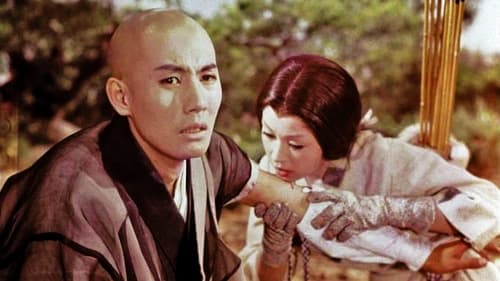
Cinematography
Princess Kiyo accidentally injures a local priest, Anchin, while on a hunt. She apologizes, but feels irritated by Anchin’s indifference to her in spite of her beauty. One night, while Anchin is recuperating in a hot spring, he is approached by Kiyo. She tells him that she is in love with him.

Japanese crime film

Director of Photography
О трагической судьбе талантливого слепого мальчика Минору Икеда, для которого единственной радостью была игра на скрипке.
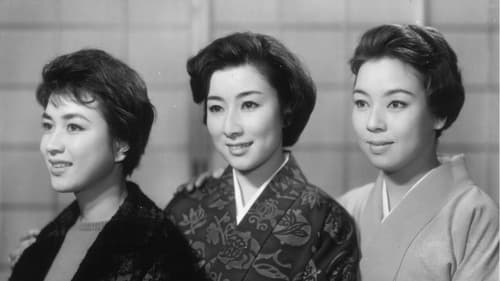
Director of Photography
1959 adaptation of Junichiro Tanizaki's novel.

Director of Photography

Cinematography
The fourth entry in the Company President Series

Director of Photography
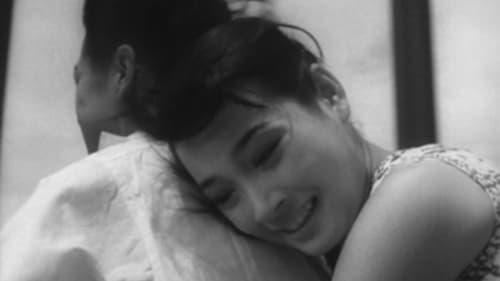
Director of Photography
В зале для посетителей Токийской тюрьмы встречаются двое: они оба пришли навестить отцов, находящихся под следствием. Он — развозчик пирожных, она — натурщица. Им обоим нужны 100 тыс. иен для залога за родителей. Кеничи пытается взять денег у матери — процветающей и феминизированной бизнес-леди, с личной машиной, в брюках, расчетливым умом и холодным сердцем. Акико деньги предлагает знакомый по работе — не стоит объяснять, взамен на что…
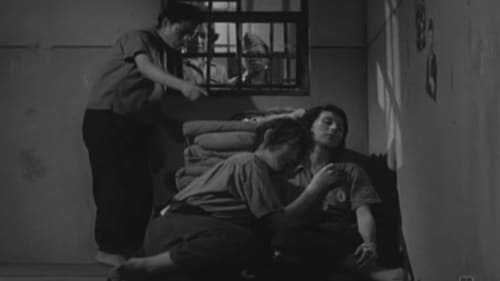
Director of Photography
The woman prison has a cast all with a story of their own and with no dull or routine day. There is an employee who is divorced after her husband had an affair. She loves the jailed criminals and almost sees them as family. One day at a workshop someone faints while working hard to make money because she has a poor boyfriend. Another inmate is knocked up Another is a mother and has her child with her.

Director of Photography
A little girl who falls into a lake and is saved by a god who then takes her up to the clouds and shows her what the world was like before she was born and what the world would be like if she where never born. While in the clouds she meets her grandparents and a few other people she loved who have passed on.

Director of Photography
14-летняя Мидори и её друзья, живущие неподалеку от токийского квартала красных фонарей Ёсивара, доживают последние недели своего беззаботного детства. Ребята ещё не знают, что вот-вот вступят во взрослую жизнь, не имея возможности самим выбирать путь — на Мидори уже имеется контракт, готовящий ей судьбу ойран, один из влюбленных в неё мальчишек станет ростовщиком, другой — буддистским священником. Судьба остальных и того менее радужная.

Director of Photography
Three young women make a suicide pact, but they grow to have a better understanding of themselves.
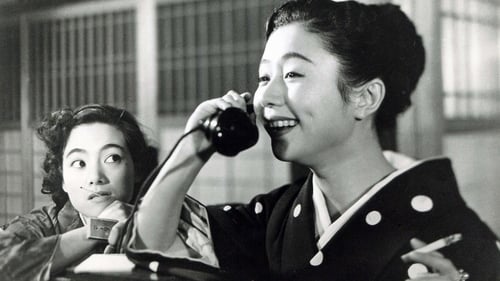
Director of Photography
Кёити Мита происходит из уважаемой семьи, он может позволить себе быть честным и прямо заявляет начальству в лицо, что он думает. В итоге его из менеджеров понижают до простого работника и отправляют в Осака. Все меняется в его жизни. Он вынужден оставить в Токио больную мать. Он даже думает о самоубийстве. Он мечтает об уединении. Его приютом становится затрапезная гостиница Суйгэцу. Здесь он встречает множество людей, которые живут не так, как им хочется. Это ещё одна грустная элегия Госё, в которой почти ничего не происходит, но каждый продолжает жить, несмотря на то, что счастье не придет никогда.

Director of Photography

Director of Photography
Buntaro, the president of a food trading company got tired of the day-to-day routine of life. The new secretary, Nobuko, suggested her "shacho-san" (the president) run away from the job. Nobuko took Buntaro to her home and introduced him to her own family as friend, "Sachio-san"...

Director of Photography
Bittersweet shomin-geki drama by Keigo Kimura
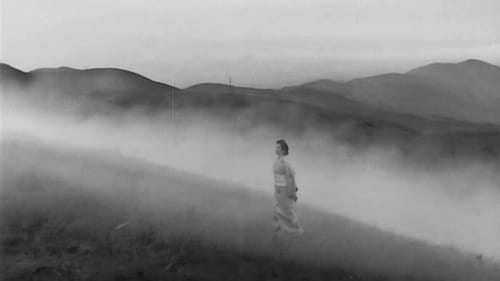
Director of Photography
Hamako has just started working for her personal hero, Madame Yuki. Her romanticized view of the Madame is broken immediately, though, as she is introduced with a ever-growing list of the Madame’s personal problems.
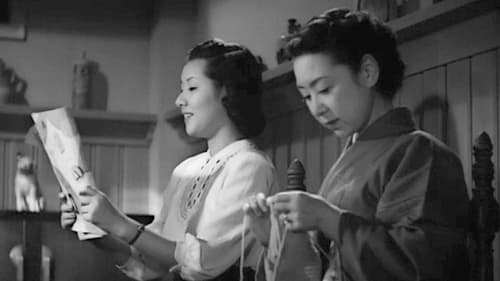
Director of Photography
Сестры Мунэката приезжают навестить своего отца. Старшая Сэцуко интересуется здоровьем родителя и узнает у его врача, что отец неизлечимо болен. Младшая Марико — легкомысленная особа, больше интересующаяся своей личной жизнью. Она знакомится в доме отца с Хироси, который был знаком с ее сестрой. Марико начинает встречаться с ним и узнает, что он все еще любит Сэцуко. Тогда Марико решает помочь своей сестре развестись с нелюбимым мужем и вновь сойтись с Хироси.

Director of Photography

Director of Photography
A love triangle among a girl, her poor boyfriend, and a rich company president.
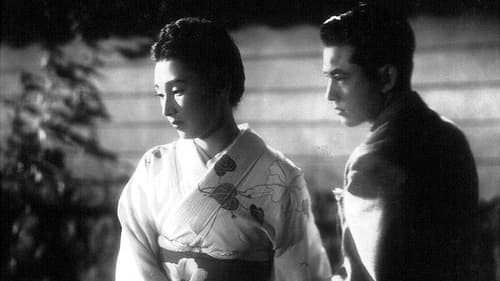
Cinematography
A platonic love story, the protagonist continues to love the woman he fell in love with when he was a boy for the rest of his life.
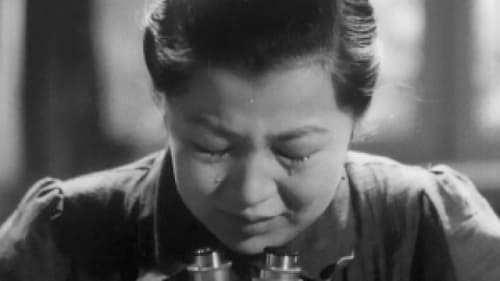
Cinematography
Фильм рассказывает о нелёгком труде женщин на военном заводе. Героини выведены не патриотично-иступлёнными автоматами, а живыми людьми, тонко чувствующими и способными на глубокие переживания.

Cinematography
Venice Film Festival 1939

Director of Photography
A Japanese screwball comedy about the battle between the sexes: two timid men, egged on by their wives, end up in a bitter duel over an expensive lace handkerchief.

Director of Photography
Двухсерийный фильм рассказывает историю Акэми, девушки с новым взглядом на предназначение женщины. Она хочет сама выбрать себе возлюбленного, но патриархальное японское общество к этому не готово.

Director of Photography
Отоку вырастила Сэйити без отца. Она радуется, что сын успешно учится на юридическом факультете. Но сын скрывает от неё свою связь с женщиной. Всё рушится, когда оказывается, что его любимая беременна. На помощь к Сэйити приходит его дядя.
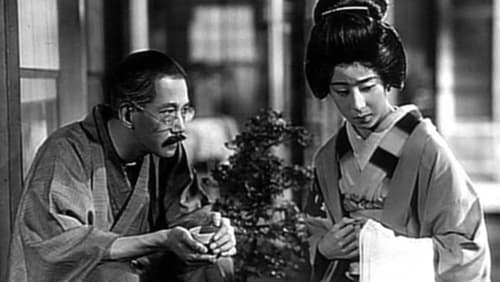
Director of Photography
Фильм начинается с семейной ссоры. Молодая жена уходит в дом родителей после размолвки с мужем-доктором. Она сама признает, что повод для ссоры был ничтожным. Все недоумевают, откуда у неё такая чувствительность и хрупкость. Сколько времени женщина сможет вытерпеть разлуку с мужем?

Director of Photography
This pair of gentle yet witty and inventive comedies from the director of The Neighbour's Wife and Mine typify both the formal experimentation of early Japanese sound cinema and the social milieux that Shochiku tended to depict. 'Virtually plotless, and feeling more like comic sketches than fully developed stories,' writes Arthur Nolletti, Jr, 'these light comedies, or farces, take a wholly trivial matter (often a socially embarrassing situation) and use it as a springboard for a succession of gags.' Much of the films' distinction comes from the wit of Gosho's direction, the imaginative use of the new sound technology and the charm of the acting, particularly of the heroines (Kinuyo Tanaka in Bride; Hiroko Kawasaki in Groom). Yet in both films, Gosho finds room for some shrewd observation of character and environment, subtly exploring the values and assumptions of the suburban petit bourgeoisie.

Director of Photography
Heinosuke Gosho evokes in this film the family conflicts engendered by the eternal problem of a father who projects his professional desires on the life of his son. The sister Machiko is the essential link that will allow everyone to apologize to each other and achieve reconciliation

Director of Photography
Путешествующий по Идзу студент Мидзухара знакомится с бродячими артистами. Его внимание привлекает юная танцовщица Каору, младшая сестра Эйкити, главы труппы. Эйкити растратил родительское наследство и теперь зарабатывает на хлеб, кочуя по гостиницам с женой и сестрой. Бедность его тяготит, и он пытается вытребовать деньги у богатого вледаельца гостиницы, который когда-то купил у него за бесценок землю, ныне приносящую большие доходы, благодаря найденным в ней залежам золотой руды. Владелец гостиницы готов отдать Эйкити деньги при условии, что Каору поступит в его дом в качестве гейши. Эйкити уговаривает сестру согласиться. Возмущенный его поведением студент отправляется к владельцу гостиницы, но то, что Мидзухара узнает об Эйкити и Каору, оказывается для него полной неожиданностью…

Director of Photography
This pair of gentle yet witty and inventive comedies from the director of The Neighbour's Wife and Mine typify both the formal experimentation of early Japanese sound cinema and the social milieux that Shochiku tended to depict. 'Virtually plotless, and feeling more like comic sketches than fully developed stories,' writes Arthur Nolletti, Jr, 'these light comedies, or farces, take a wholly trivial matter (often a socially embarrassing situation) and use it as a springboard for a succession of gags.' Much of the films' distinction comes from the wit of Gosho's direction, the imaginative use of the new sound technology and the charm of the acting, particularly of the heroines (Kinuyo Tanaka in Bride; Hiroko Kawasaki in Groom). Yet in both films, Gosho finds room for some shrewd observation of character and environment, subtly exploring the values and assumptions of the suburban petit bourgeoisie.


























